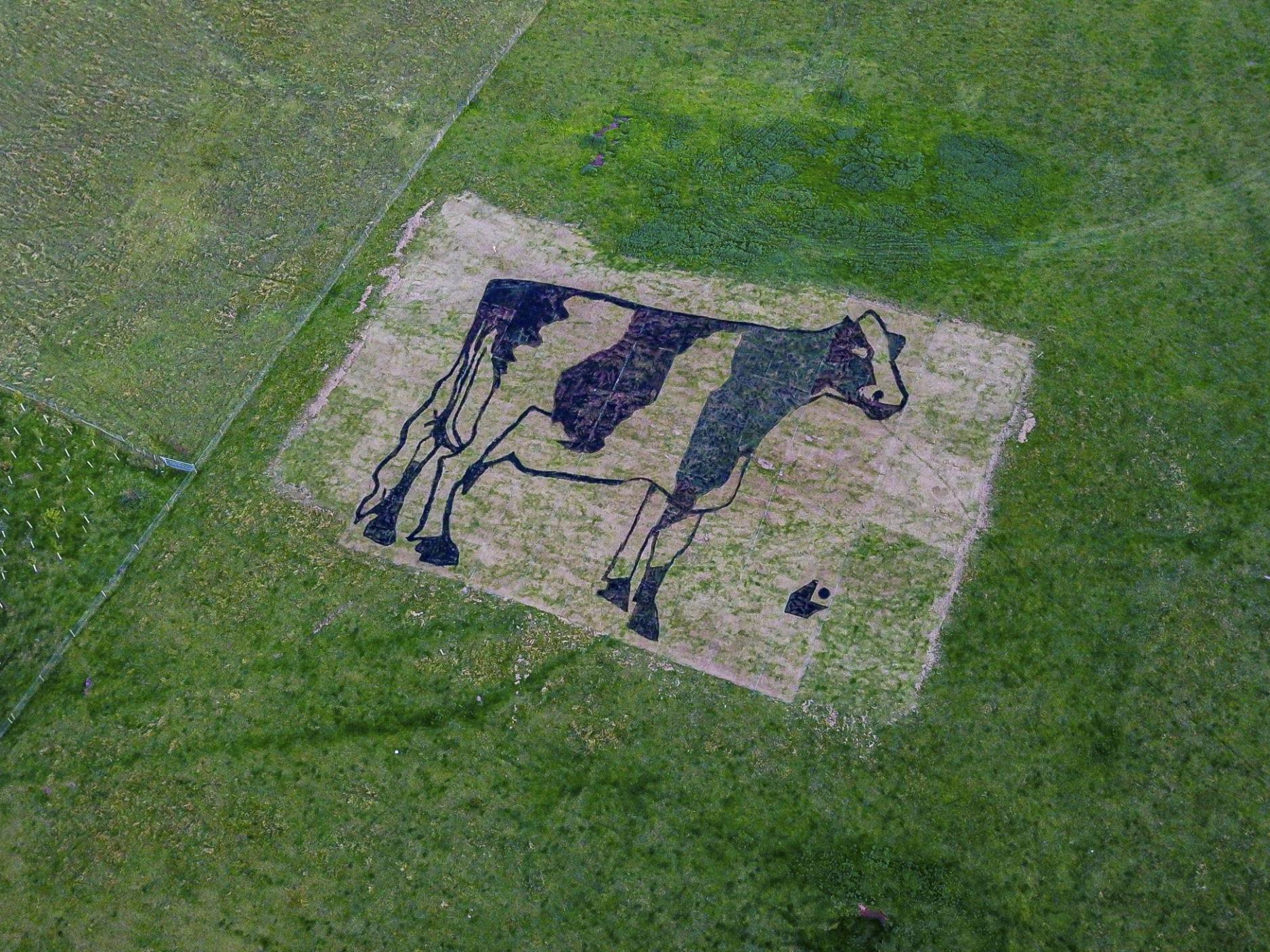Artists create giant cow out of manure in Somerset countryside
Brooms used as brushes to make colossal ‘poo painting’

A team of 12 artists have spent a week on a hillside creating a 70m-wide cow from manure.
Heather Jane Wallace, Rebecca Barnard and 10 other artists used 3,000 buckets of cow excrement for their masterpiece.
The dirty dozen were commissioned to create the giant Friesian cow by dairy company Yeo Valley, which wanted to highlight the benefits of organic farming as it celebrates its 25th birthday this week.
They spent a week making the artwork near on a north Somerset hillside near the village of Blagdon
Sarah Mead, from Yeo Valley, said: “We made it using the cow muck from the farm to get the message across - that organic farming works with, and not against the natural environment.
“Organic farming can help tackle climate change because healthy soil has the ability to store the excessive carbon from the atmosphere."
Banana eating art removal sparks banana eating protests: in pictures
Show all 11She added: “The giant cow won’t be here for long. Nature will have the last laugh, as ever. That’s also part of the message. It’s about putting nature first.
“We’ve been lucky enough to farm this land for 25 years, so it’s a way of marking the occasion.”
At 70 metres wide and 50 metres high, the giant cow compares to other well-known West Country works of art including the Cerne Abbas Giant in Dorset (55 metres high) and the Westbury White Horse in Wiltshire (55 metres high and 52 metres wide).
Heather Jane Wallace, who runs Heritage Courtyard Gallery and Studios in Wells, Somerset, alongside Rebecca Barnard, said: “I’m a Somerset girl. My brother, nephew and grandfather are farmers so I really understand the message.
"When I grew up, farming was naturally organic. I remember when farmers were encouraged to spray their crops after the war to produce more and more food at lower prices.
"The result of this was the decline and disappearance of the countryside and wildlife.
“Organic farming is so important for wildlife, healthy soil and tackling climate change."
She added: “It was very exhausting carrying the poo up the steep hill. We used great big household brooms to paint it into the grass.
“It was a challenge getting the scale right – from a distance we quickly realised that you can only make out great big shapes and not details like eyelashes.”
SWNS
Subscribe to Independent Premium to bookmark this article
Want to bookmark your favourite articles and stories to read or reference later? Start your Independent Premium subscription today.

Join our commenting forum
Join thought-provoking conversations, follow other Independent readers and see their replies